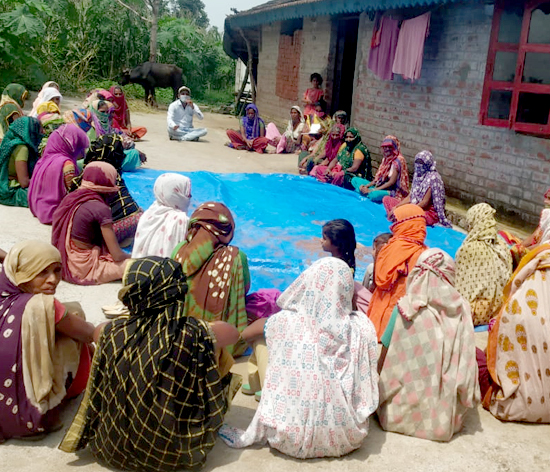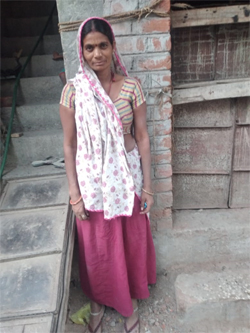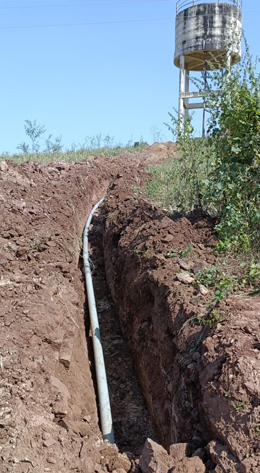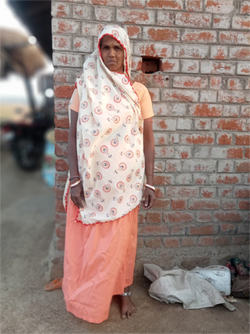
Jitaben Maganbhai Ninama and Dalkiben Ninama are two unusual heroes who have been at the forefront of ensuring water democracy in Polisimal village in Gujarat’s Dahod district.
Hailing from socially backward communities and with no proper education – Jitaben completed primary schooling while Dalkiben never went to school – these two women have proved that community ownership and participation is key to the success of welfare initiatives.
 |
| Jitaben Maganbhai Ninama |
Jitaben and Dalkiben became role models when Polisimal, home to over 300 households, decided to find a permanent solution to its drinking water problem.
Polisimal residents relied on bore wells or open well for fulfilling their drinking water needs. The households lacked functional household tap connections (FHTCs).
Piped solutions
Relief was at hand for the residents when the Government of India’s Jal Jeevan Mission (JJM) which envisions to provide safe and adequate drinking water through individual household tap connections by 2024 to all households in rural India, was extended to their village.
Collective for Integrated Livelihoods Initiative (CInI, an associate organisation) of the Tata Trusts, in collaboration with WASMO (Water and Sanitation Management Organisation) of the Gujarat government, played a critical role in ensuring community engagement in the planning and execution of drinking water scheme under JJM.
 |
| Laying of pipeline in Polisimal village for household tap connections in Gujarat’s Dahod district |
CInI mobilised the community through a rigorous Participatory Rural Appraisal (PRA) process to educate the community about the need for household tap connections. It also helped the community prepare an appropriate village action plan. In September 2020, a Pani Samiti (Water Committee) comprising 11 members – eight women and three men – was formed. It had representation from each hamlet in Polisimal. Sub-committees were also formed in each hamlet to ensure maximum community participation and to oversee the project implementation.
CInI followed it up with training programmes where the participants were educated about the o and responsibilities of Pani Samitis in the planning phase, and technical specification of the schemes and responsibilities of committees in ensuring quality construction. Jitaben and Dalkiben both also participated in one of the exposures organised at Rangpura village in Khambat taluka in Anand district.
In September 2021 the physical execution of the scheme began. The plan was to connect the village with regional water supply scheme to ensure a Functional Household Tap Connection (FHTC) for each house in the village.
 |
| Dalkiben Ninama |
Unusual heroes
The contribution of Jitaben and Dalkiben has been significant in ensuring that the proper standards for laying of the pipeline were followed. During the laying of the pipeline in their hamlet of Naka Faliya, the duo realised that the required depth of three feet for the pipeline was not being met.
The duo met the village sarpanch (the village headman) and made him aware about the problem. However, when the sarpanch failed to get involved, Jitaben and Dalkiben along with others stopped the work and forced the agency who was assigned for the implementation work in their village, to maintain the depth of three feet for laying the pipeline.
The intervention by Jitaben and Dalkiben have ensured that the correct standards were followed in rest of the village. Through their vigilance, they have demonstrated the value of community ownership in the development process.
About 50% Pani Samiti members in the village are women and the leadership demonstrated by the duo has motivated other members. By ensuring the project implementation staff follows proper standards and guidelines, both Jitaben and Dalkiben have set an example for other women to emulate. Women are important stakeholders and their contribution can help the villages become not only water sufficient but also ensure the long-term sustainability of the solutions.
